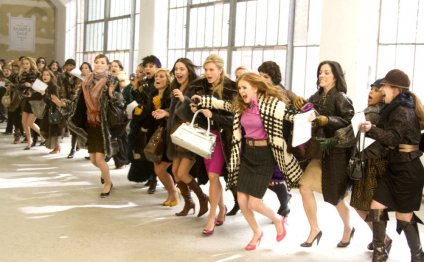
Fast Fashion trends
Clothes chains like H&M (overhead) and Forever 21 design and distribute brand-new styles so rapidly and cheaply, they have been dubbed "fast style" merchants. Kathy Willens/AP hide caption
toggle caption Kathy Willens/APClothing stores like H&M (above) and Forever 21 design and circulate new designs therefore quickly and inexpensively, they have been dubbed "fast style" stores.
Kathy Willens/APWhenever she got off college and moved to New York, Elizabeth Cline liked to search at vintage-clothing stores. These were the kinds of locations saved on side roads in Manhattan and Brooklyn, in which many hunting and some luck might reward
After that she found the field of "fast manner" — stores like Forever 21, H&M and Zara — and it also redefined her entire thought of discount shopping.
"these products have become, inexpensive, " claims Cline, writer of Overdressed: The Shockingly High price of Cheap Fashion. "the style is pretty attractive. While you head into the store, i do believe, for many consumers, it is practically impossible to walk out empty-handed."
The thing is that some services and products and it's only garbage. It's just crap, and you sort of fold it up while believe, yeah, you are going to use it Saturday-night towards celebration — then it is virtually planning fall apart.
Simon Collins, dean of fashion, Parsons the brand new class for Design
'Selling An Ocean Of Clothing'
With time, Cline had amassed 354 items of clothing, several of which she never ever wore. And such excesses aren't all of that unusual, she notes. Stores like H&M are constantly turning over their product, presenting ever-trendier clothing and feeding their clients' desire for novelty.
"We want to shock the clients, " says Margareta van den Bosch, their hugely important style adviser. "you want to have one thing exciting. And when it is all the time dangling equivalent things truth be told there, it's not so interesting, I think."
Most of H&M's clothing is really affordable — a $10 leopard-print top or a $15 sweater, including — that consumers can afford to get it in quantities that wouldn't have begun to easily fit into our grand-parents' armoires. It is so inexpensive that it'sn't even really worth coming back when we go back home and decide we don't like it, Cline states.
But regardless of the affordable prices, quick fashion chains are enormously profitable. Product sales at H&M's mother or father organization rose by 11 % in 2012. Its president and largest shareholder, Stefan Persson, is the 17th richest individual on the planet, with a net worth of $26.3 billion, relating to Bloomberg. Amancio Ortega, creator of Zara, another extremely successful string, may be the 3rd richest, really worth $58.3 billion.
How can these shops make much money attempting to sell ten dollars tops? Mainly due to volume.
"A store like H&M produces vast sums of garments annually, " Cline states. "They place a little markup regarding the clothing and make their profit from attempting to sell an ocean of garments." H&M features 2, 800 stores in 48 markets and it's really growing quickly, particularly in Asia and also the US, in accordance with the business's website.
Rates at shops like Forever 21 are incredibly low, "it's virtually impractical to go out empty-handed, " claims Elizabeth Cline, whom writes about fast fashion. Michael Buckner/Getty Pictures hide caption
toggle caption Michael Buckner/Getty PhotographsCosts at shops like Forever 21 are low, "it's virtually impossible to walk out empty-handed, " says Elizabeth Cline, whom writes about fast manner.
Michael Buckner/Getty PhotographsThe success of chains like H&M and Forever 21 presents a paradigm shift within the retail globe, one that features impacted every spot of the industry.
Inside sixties, people generally speaking bought their particular clothing from big stores like malls, which bought from manufacturers. In the 1970s, stores started to manufacture clothes themselves, giving them direct control of the manufacturing and distribution process.
Among the pioneers of the change ended up being Les Wexner, founder associated with Ohio-based women's clothes sequence The Limited, claims Frank Bober, CEO of Stylesight, an organization that helps retailers and designers area styles.
"he had been the guy that recognized that, 'Hey, I am able to try this myself. I can determine what my clients desire, what my customer wishes, after which I am able to get make that for them. I do not have to go to a bunch of producers to accomplish this, ' " Bober states.
The Termination Of The Two-Season Searching Calendar
At the same time, computer technology changed the whole procedure, enabling retailers to style, manufacture and ship products even more quickly and more effortlessly. At once, the fashion industry worked around a two-season schedule that unfolded at a predictable pace.
"I remember my mommy would take myself shopping in August for the autumn, and I also would you need to be dying, wearing these itchy sweaters when it had been 90 degrees outside, " recalls Sharon Graubard, Stylesight's design director. "No person does that any longer."
a persistent drive for speed now characterizes the industry. Chains like Zara are fast, they could design, make to get clothing onto shop shelves in per month. Consumers can now quickly look at most recent fashions online and became conditioned to expect a constant blast of trendy brand-new types from merchants.
This consider speed has impacted every sort of merchant, also those maybe not usually considered fast fashion.
"exactly what which has had done is made the move faster and work faster and also have to produce even more item, " states Ed Filipowski, president of KCD, a pr firm that signifies a number of the biggest and best-known companies in fashion. "It's created a kind of year-round calendar for fashion in place of a biannual schedule for fashion. It's made our job a great deal more difficult and it is made creativity a continuing challenge."
The good news is that retailers have actually whetted customers' demand for novelty, they need to hold their products or services affordable — a large challenge. That means production in low-wage countries like Asia, but it also suggests making use of low priced, artificial products and rudimentary manufacturing procedures.
The simple simple truth is that a lot quick manner does not survive more than a few washings. Simon Collins, dean of fashion at Parsons the latest class for Design, likes how quick fashion has taken an even of design into the public, but he laments exactly how badly managed to get are.
"You see some products and it's really simply garbage. It's just crap, " he says. "and also you type of fold it up and also you think, yeah, you're going to put it on Saturday night to your celebration — and it is actually going to break apart."
Author Elizabeth Cline remembers purchasing a shirt at Old Navy, a sequence she regularly constant. "I'd this tank top that had two plants, kind of like from the strap, and ... once I started writing the guide, I just started taking a look at my clothing, while the blossoms were actually attached with type of tape. They certainly weren't even sewn on."
'Landfill Fashion'
Poor quality has actually switched the fast manner label into some thing of a pejorative, to such an extent that chains like Uniqlo and H&M now reject the definition of entirely.
RELATED VIDEO



Share this Post
Related posts
Winter Style
WinterStyle.com specializes in premium quality winter months outerwear accessories. Discover the seasons hottest winter months…
Read MorePast Fashion trends
We ve all made some less-than-stellar style choices. (Neon leotards? Truly??) nevertheless first rung on the ladder to recovery…
Read More










